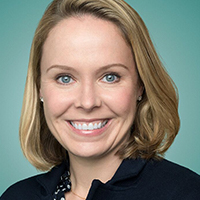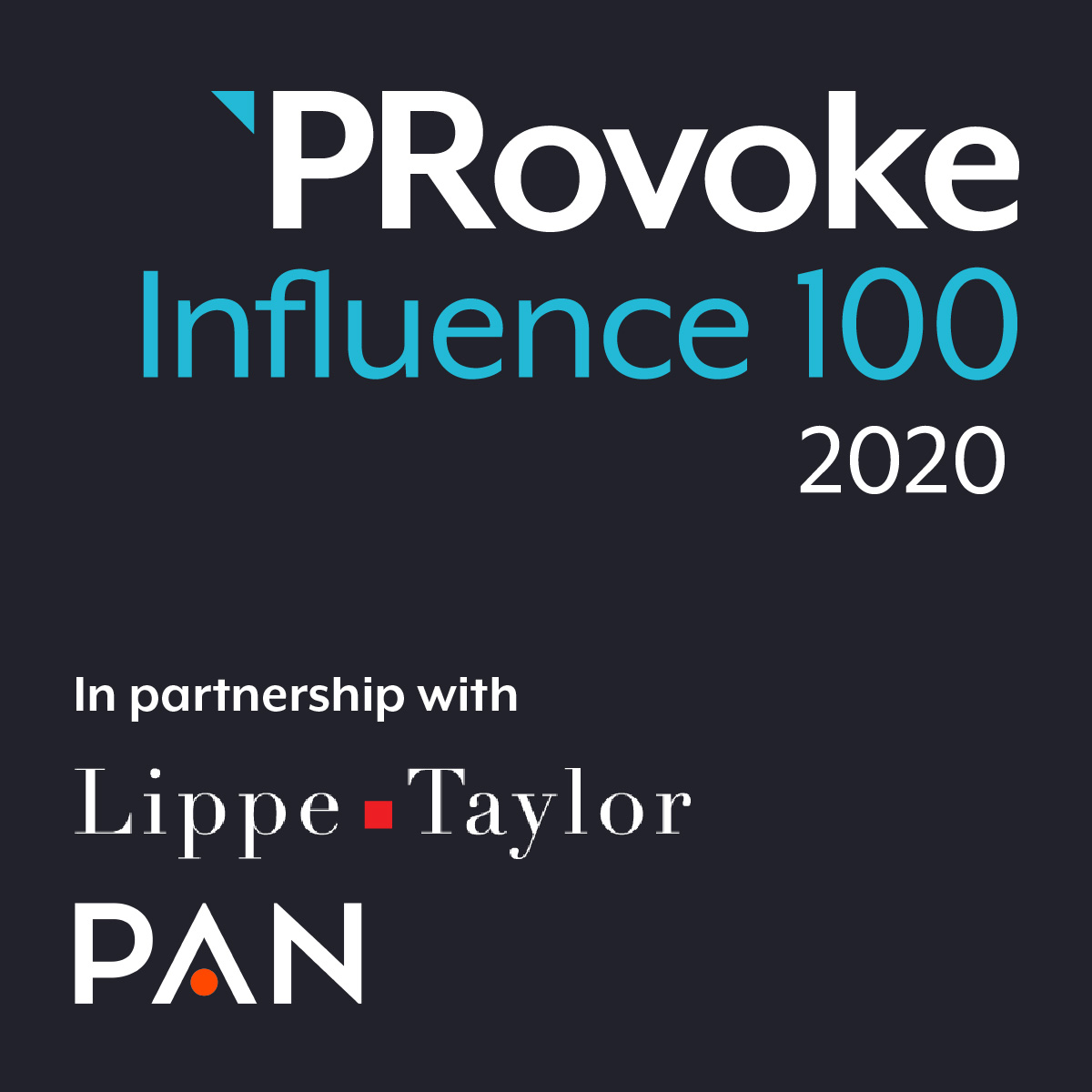
 Podcasts
PodcastsCatch the latest PR news & updates with PRovoke Media's PR Podcasts. Lifting the lid on key industry stories & trends, join our listeners of PR podcasts today.
 Videos
VideosLatest video interviews and campaigns from PRovoke Media, previously known as the Holmes Report.
Long-form journalism that analyzes the issues, challenges and opportunities facing the business and practice of PR.
 Profiles & Interviews
Profiles & InterviewsExplore PR profiles and interviews with leaders from the marketing and PR worlds.
 Crisis Review
Crisis ReviewPR Crisis & Business Crisis review. PRovoke Media's annual analysis of the top reputation crises to rock the corporate sector. Read on here.
 Coronavirus
CoronavirusPRovoke Media's coverage of the Covid-19 crisis, focusing on corporate communication, public affairs & PR industry fallout.
 Trend Forecasts
Trend ForecastsPRovoke Media's PR Trends round up. PRovoke Media's annual forecast of PR trends and news that will impact the PR world in the year ahead...
 Social & Digital
Social & DigitalDedicated to exploring the new frontiers of PR as it dives deeper into social media, content and analytics.
 Technology
TechnologyOur coverage of key technology PR trends and challenges from around the world of digital communications.
 Consumer
ConsumerFrom brand marketing to conscious consumerism, coverage of key marketing and PR trends worldwide.
 Employee Engagement
Employee EngagementPRovoke Media's coverage, analysis and news around the rapidly-shifting area of employee engagement and internal communications.
 Sports Marketing
Sports Marketing Sports PR news, diversity & inclusion trends, views and analysis from PRovoke Media. Subscribe today for the very latest in the world of sports communications.
 Global PR Agency Rankings
Global PR Agency RankingsPRovoke Media's definitive global benchmark of global PR agency size and growth.
Enter PRovoke Media's 2024 Global 250 Agency Ranking and/or our Agencies of the Year competitions now.
 Agencies of the Year
Agencies of the YearPRovoke Media's annual selections for PR Agencies of the Year, across all of the world's major markets.
 Innovator 25
Innovator 25PRovoke Media profiles marcomms innovators from across North America, EMEA and Asia-Pac.
 Creativity in PR
Creativity in PRIn-depth annual research into the PR industry's efforts to raise creative standards.
 Asia-Pacific Communication Index
Asia-Pacific Communication IndexAPACD/Ruder Finn annual study of Asia-Pacific in-house communications professionals.
 SABRE Awards
SABRE AwardsThe world's biggest PR awards programme, dedicated to benchmarking the best PR work from across the globe.
 PRovokeSummit Global
PRovokeSummit GlobalThe biggest PR conference of the year, a high-level forum designed to address the critical issues that matter most.
 PRovoke Media Regional Series
PRovoke Media Regional SeriesA global network of conferences that explore the innovation and disruption that is redefining public relations.
 Agencies of the Year
Agencies of the YearUnrivalled insight into the world's best PR agencies, across specialist and geographic categories.
 Roundtables
RoundtablesOur Roundtables bring together in-house comms leaders with PR firms to examine the future of communications.
 Agency Playbook
Agency PlaybookThe PR industry’s most comprehensive listing of firms from every region and specialty
.jpg) All Jobs
All JobsFind the latest global PR and communications jobs from PRovoke Media. From internships to account executives or directors. See all our PR jobs here.
PRovoke Media's editorial series published in collaboration with partners.

It’s been a tough ride for tech PR veteran Jill Hazelbaker, who became Uber’s head of public policy and communications in 2017. Even before the pandemic, Uber had become one of the industry’s toughest PR gigs, given the brunt of criticism the ride-sharing company has faced on many fronts. And with travel essentially halted, Uber laid off thousands of workers. But signs are pointing towards a turnaround: food delivery and its plans to buy delivery app Postmates is expected to pay off, according to the company’s most recent earnings.
Can you share a moment in your career when you saw PR's direct impact on business performance?
I was an early and vocal advocate for the release of Uber’s Safety Report, a first of its kind report that detailed the most serious safety incidents happening on our platform, including sexual assaults. As someone who does PR and marketing for a living, it might seem counterintuitive to argue for the voluntary release of something that would undoubtedly generate negative headlines. Uber obviously isn’t alone in dealing with sexual assault and violence. But companies don’t talk about it, they don’t want their brands to be defined by it, and they certainly don’t want to disclose any numbers. As a result, these issues are usually addressed in the dark — and that approach isn’t going to make anyone safer. For me, transparency and the accountability that comes with it were key to turning our goal of becoming the safest ridesharing company on earth into a reality. Since we made the decision to release the report, we’ve tripled the size of our safety team, overhauled how we train our support staff, and rolled out cutting-edge safety technology. We’ve also made an impact beyond Uber, encouraging others to release their own data. Of all the things I’ve been a part of, in politics and in business, there’s nothing that has made me prouder. The work will never be done, but it’s a strong step in the right direction.
What are the comms industry's biggest challenges and opportunities in the year ahead?
I think public relations as we knew it is over. The communications industry’s challenge is the same as the media industry’s challenge. Unfortunately, the number of publications and journalists is shrinking, including in the tech space, which means that there are fewer journalists to pitch and the reporters on the other end of the line are more stretched than ever before. Looking on the bright side, I think there is opportunity for PR people to become more strategic advisors, helping executives understand how business decisions impact the company’s reputation.
What have you most admired about this industry in 2020?
This is a really challenging time and many companies, including ours, have had to do layoffs. It’s a message no one wants to write, and I’ve admired the way human and empathetic communications I’ve seen by many companies, led by Brian Chesky’s letter to employees. I thought Airbnb’s was really thoughtful and well done.
What has most disappointed you about this industry in 2020?
I try to look on the bright side.
How have you switched off from work and maintained wellness in lockdown?
I’ll be honest: it’s been a challenge as the line between work and home is blurrier than ever. I have three kids under five, including a newborn, so some days wellness is a 20-minute walk by myself.
Which book/movie/TV show/podcast/playlist/other cultural source has helped you get through this year or provided inspiration?
I’ve turned to my faith. Last spring I started reading the bible almost daily and I write down verses that speak to me. Whenever I feel anxious or stressed I turn to one of those to help me find peace.
If I wasn't working in marketing/communications, I would be...
A lawyer. I love a good debate.
Sum up 2020 in one word.
Sad.





Intelligence and insight from across the PR world.
About PRovoke Media Contact Us Privacy & Cookie PolicyWe feel that the views of the reader are as important as the views of the writer. Please contact us at [email protected]
Signup For Our Newsletter Media Kits/Editorial Calendar Jobs Postings A-Z News Sitemap© Holmes Report LLC 2024